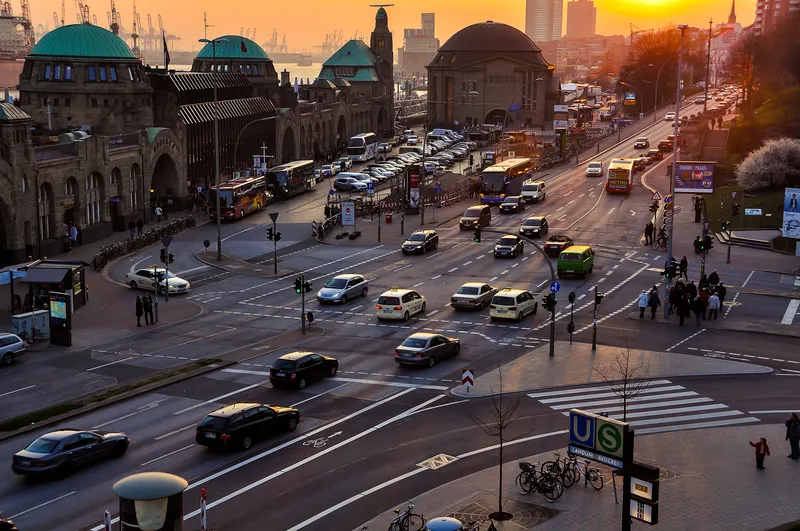
A new agreement on digital mobility could see 10,000 autonomous vehicles on the streets by 2030 in the German city of Hamburg.
Host of the 2021 ITS World Congress, the city is set to become a Metropolitan Model Region of Mobility in Germany, following a declaration of intent signed by transport minister Dr. Volker Wissing and Dr. Anjes Tjarks, senator for transport.
Wissing believes digitalisation is key to future mobility and to tacking the climate crisis: "In view of increasing traffic volumes, we need new technologies to guide mobility wisely and to use the existing infrastructure efficiently," he said.
The AVs would be a mixture of shared, on-demand and private vehicles, including trucks, while the S-Bahn rail network would also be digitised, running autonomously and more frequently.
The idea is that the Hamburg blueprint for a digitialised urban mobility system would be transferred to other regions.
"Digitalisation should make people's lives and their mobility, easier and more convenient," explains Tjark.
Hamburg is bidding to host the International Association of Public Transport (UITP) World Congress in 2025 or 2027.









